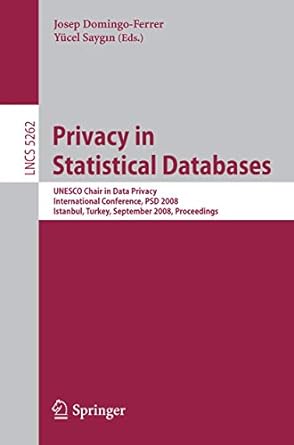Answered step by step
Verified Expert Solution
Question
1 Approved Answer
(Integral test). Let f:{xR:x>=1}->R be a decreasing positive-valued function. Prove that sum_(n=1)^(infty ) f(n) converges if and only if lim_(n->infty )int_1^n f(x)dx exists. (Hint: Draw
(Integral test). Let
f:{xR:x>=1}->R be a decreasing positive-valued function. Prove that
\\\\sum_(n=1)^(\\\\infty ) f(n) converges if and only if
\\\\lim_(n->\\\\infty )\\\\int_1^n f(x)dx exists. (Hint: Draw a diagram.)\ Use the preceding problem to tell for which
\\\ ho >0 the following series converge:\
\\\\sum_(n=1)^(\\\\infty ) (1)/(n^(p)),\\\\sum_(n=1)^(\\\\infty ) (1)/(n(logn)^(p)),\\\\sum_(n=1)^(\\\\infty ) (1)/(nlogn(loglogn)^(p)).  Integral test). Let f:{xR:x1}R be a decreasing positive-valued function. Prove that n=1f(n) converges if and only if limn1nf(x)dx exists.(Hint: Draw a diagram.) Use the preceding problem to tell for which >0 the following series converge: n=1np1,n=1n(logn)p1,n=1nlogn(loglogn)p1
Integral test). Let f:{xR:x1}R be a decreasing positive-valued function. Prove that n=1f(n) converges if and only if limn1nf(x)dx exists.(Hint: Draw a diagram.) Use the preceding problem to tell for which >0 the following series converge: n=1np1,n=1n(logn)p1,n=1nlogn(loglogn)p1
(Integral test). Let
f:{xR:x>=1}->Rbe a decreasing positive-valued function. Prove that
\\\\sum_(n=1)^(\\\\infty ) f(n)converges if and only if
\\\\lim_(n->\\\\infty )\\\\int_1^n f(x)dxexists. (Hint: Draw a diagram.)\ Use the preceding problem to tell for which
\\\ ho >0the following series converge:\
\\\\sum_(n=1)^(\\\\infty ) (1)/(n^(p)),\\\\sum_(n=1)^(\\\\infty ) (1)/(n(logn)^(p)),\\\\sum_(n=1)^(\\\\infty ) (1)/(nlogn(loglogn)^(p)). 
Step by Step Solution
There are 3 Steps involved in it
Step: 1

Get Instant Access to Expert-Tailored Solutions
See step-by-step solutions with expert insights and AI powered tools for academic success
Step: 2

Step: 3

Ace Your Homework with AI
Get the answers you need in no time with our AI-driven, step-by-step assistance
Get Started


